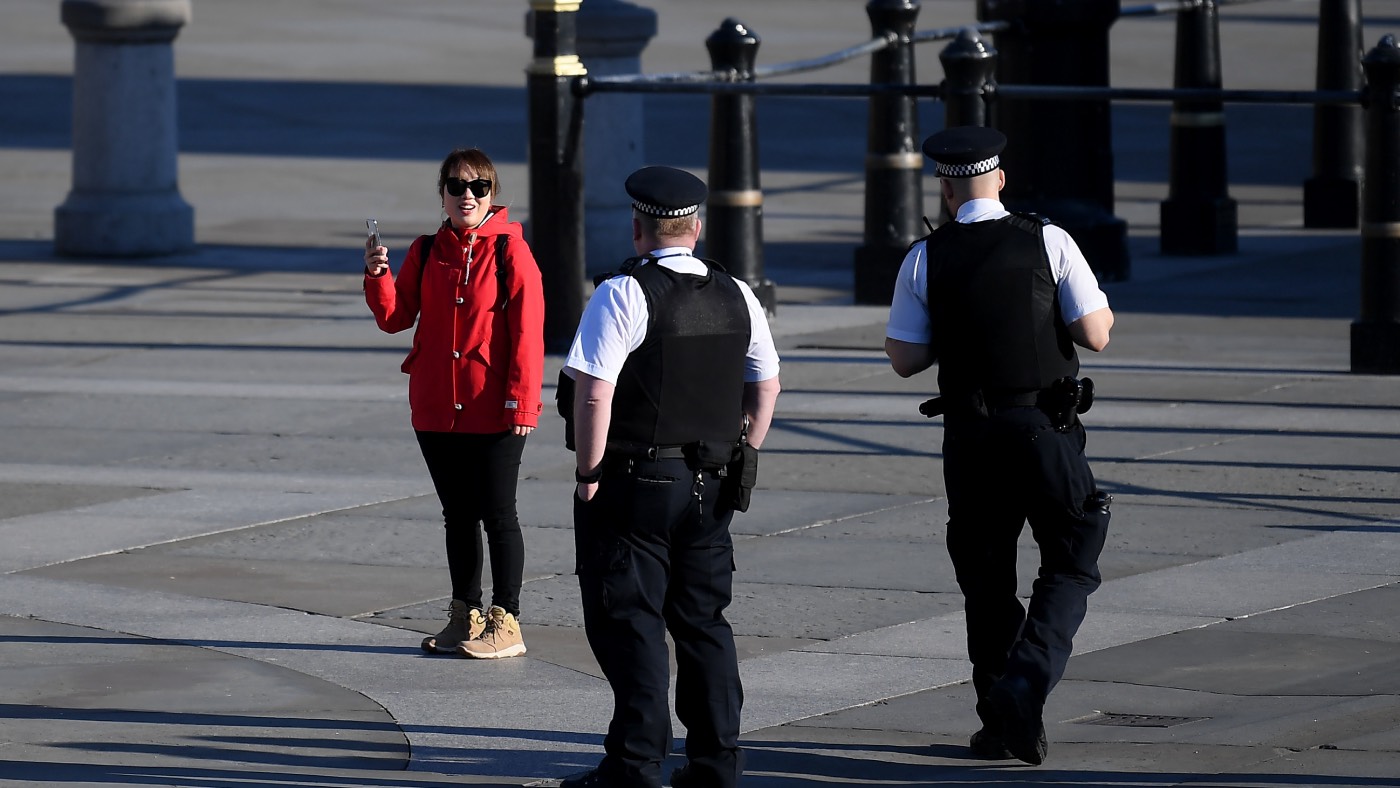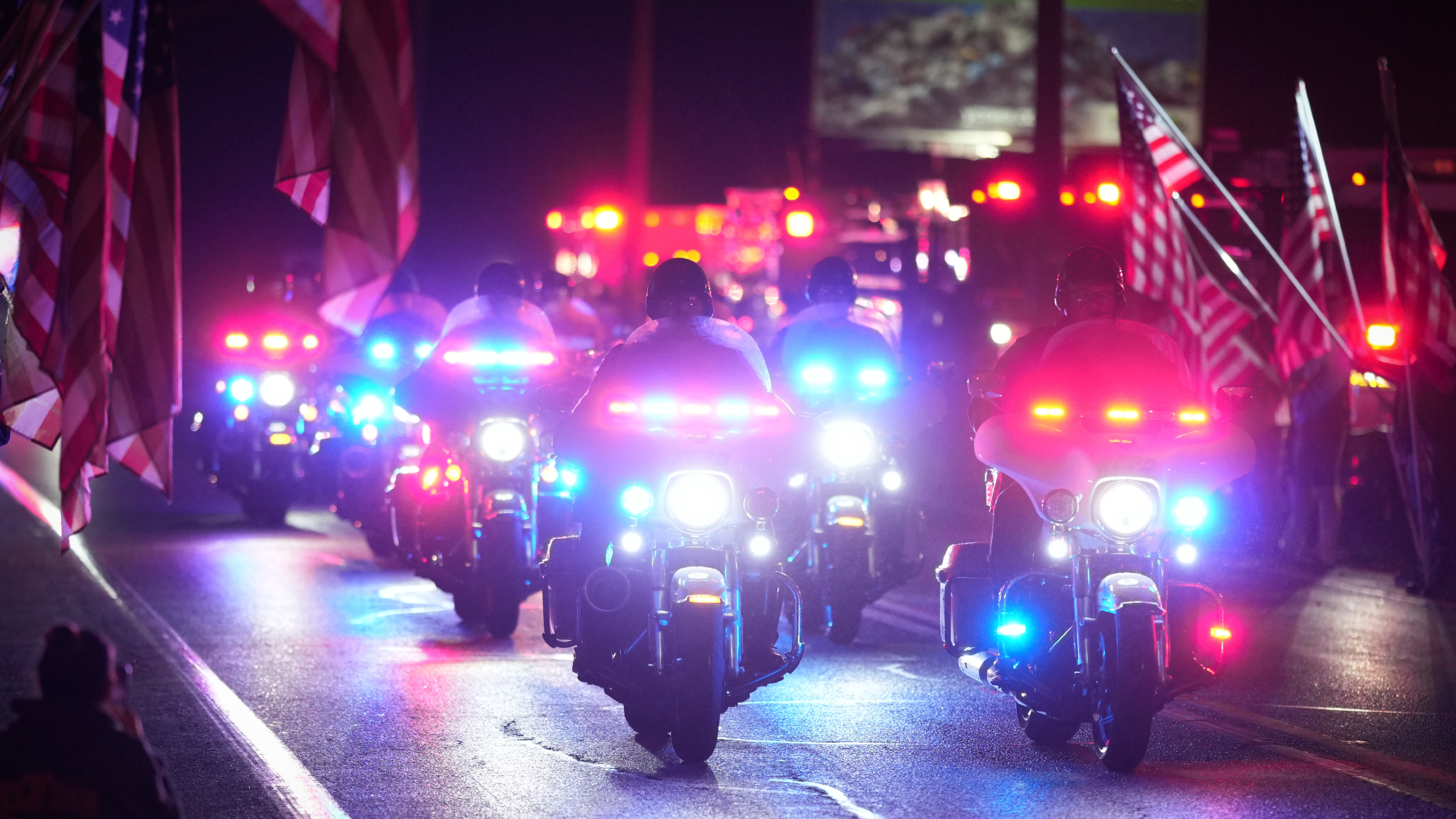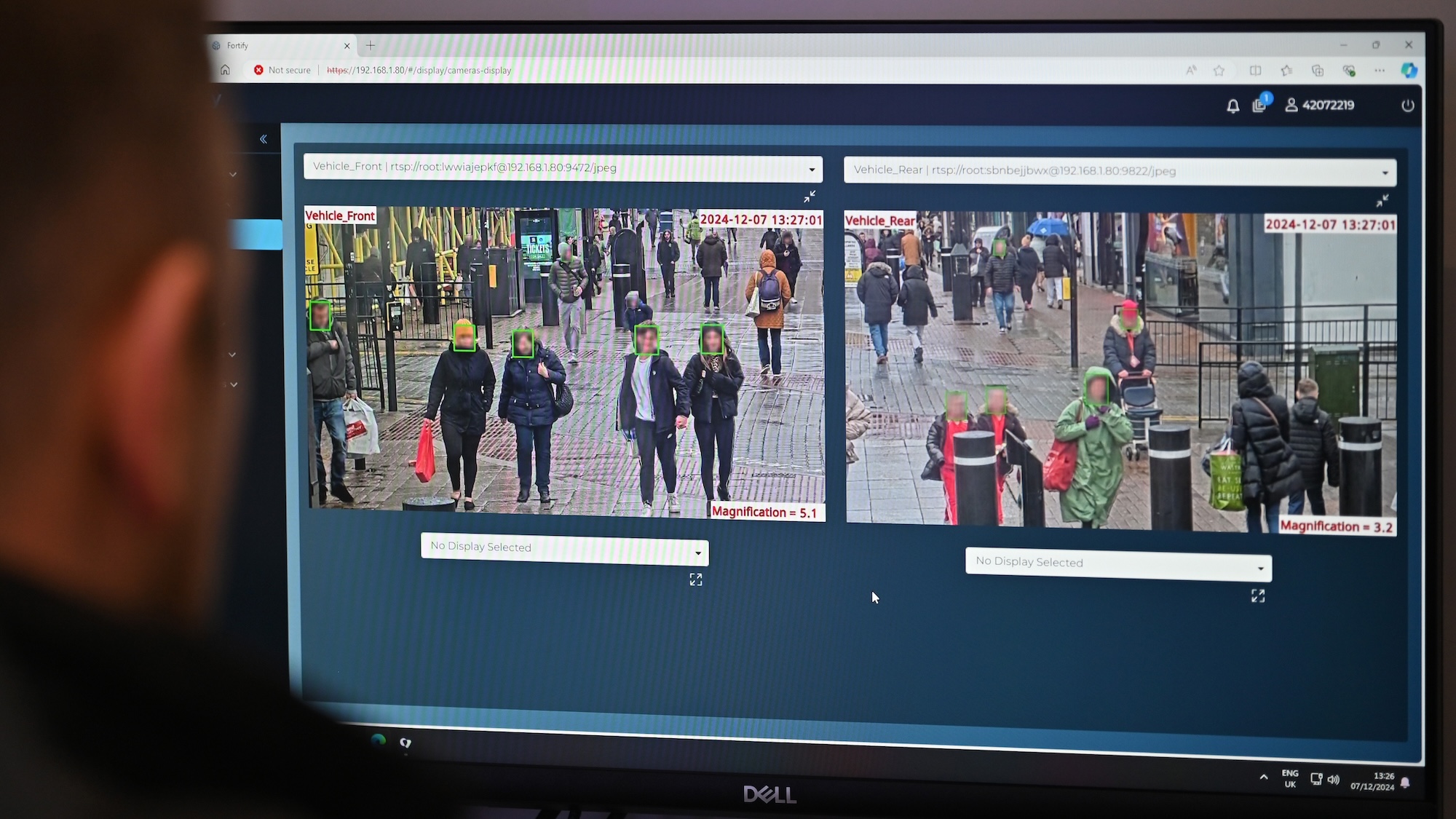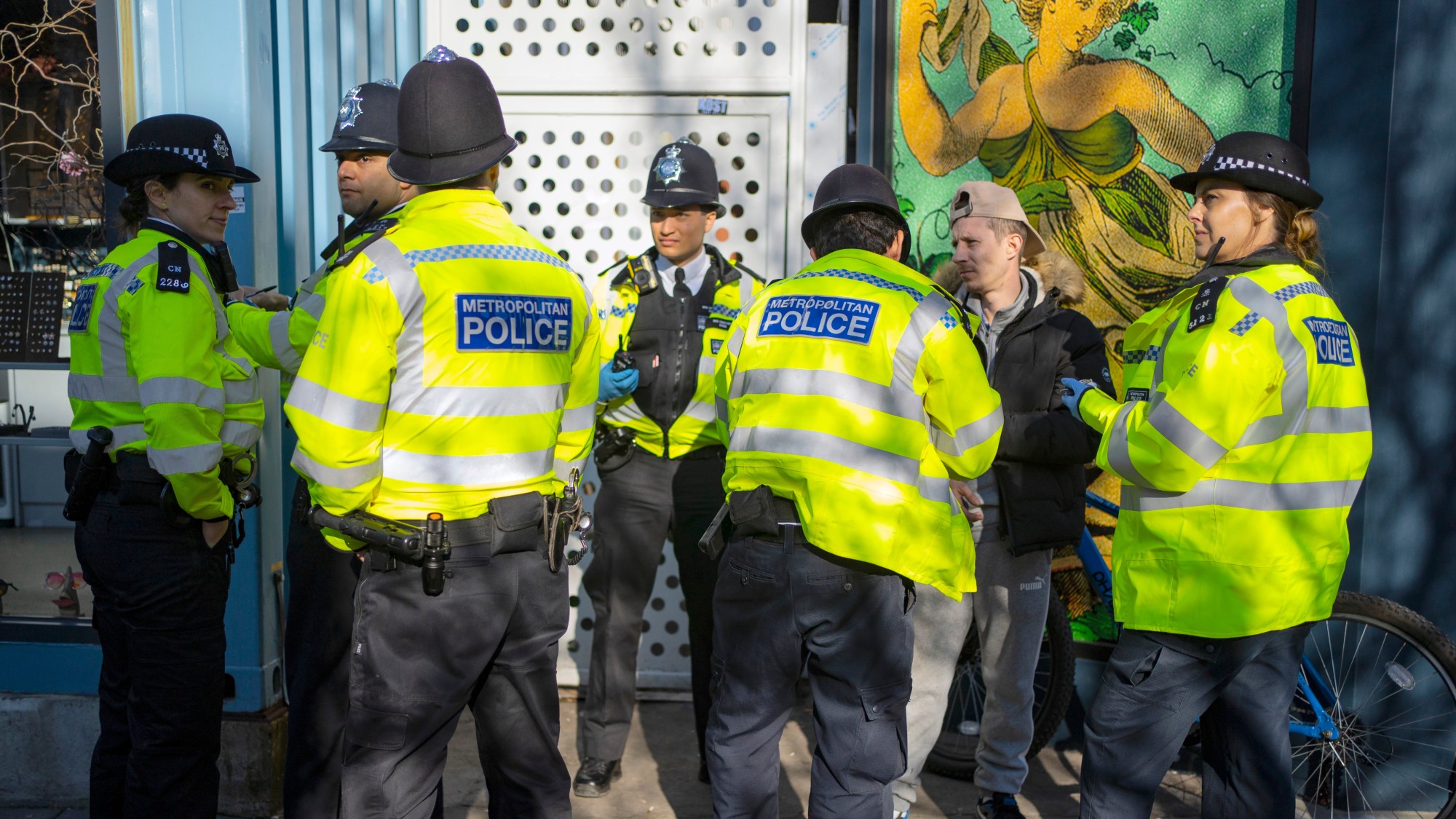Coronavirus: what powers do police have?
Woman fined £660 for refusing to tell police why she was out

A free daily email with the biggest news stories of the day – and the best features from TheWeek.com
You are now subscribed
Your newsletter sign-up was successful
A woman arrested by police for breaking a new coronavirus law has been fined £660.
According to Sky News, Marie Dinou, 41, refused to explain to officers her reason for essential travel when they found her on a platform at Newcastle railway station.
Dinou was fined £85 for ticket fraud, £660 for breaking new coronavirus regulations on leaving home without a reasonable excuse and was also ordered to pay £80 costs.
The Week
Escape your echo chamber. Get the facts behind the news, plus analysis from multiple perspectives.

Sign up for The Week's Free Newsletters
From our morning news briefing to a weekly Good News Newsletter, get the best of The Week delivered directly to your inbox.
From our morning news briefing to a weekly Good News Newsletter, get the best of The Week delivered directly to your inbox.
The fine comes after police forces across the UK were told to be consistent when enforcing social distancing measures aimed at stopping the spread of the coronavirus.
–––––––––––––––––––––––––––––––For a round-up of the most important stories from around the world - and a concise, refreshing and balanced take on the week’s news agenda - try The Week magazine. Start your trial subscription today –––––––––––––––––––––––––––––––
Under measures to fight the outbreak, people are only allowed to leave the house for shopping for “basic necessities”, one form of exercise a day, medical reasons and travelling to and from work.
Permitted activities also include moving house, fulfilling legal obligations and escaping injury, illness or the risk of harm, including fleeing domestic violence.
A free daily email with the biggest news stories of the day – and the best features from TheWeek.com
New emergency powers also give police the right to detain someone to be tested if they are believed to be infectious and the power to close a wide range of non-essential businesses.
Police are able to instruct people flouting the rules to go home, leave an area or disperse and ensure parents are taking necessary steps to stop their children breaking the rules. Under 18s will be taken back home to their parents or guardians.
Officers can issue a £60 fixed penalty for failing to comply with the regulations, lowered to £30 if paid within 14 days, or a £120 fixed penalty for second-time offenders, doubling on each further repeat offence.
The powers came into force with immediate effect and will last six months, with a review every three weeks.
The Guardian says that officers will “first encourage and cajole people to go back indoors” if they suspect them of being out of their home in breach of the ban.
If that and the issuing of a fine fail, reasonable force could be used as a “last resort”, the paper adds.
“But there is an enormous gap between what the government would like people to do and the actual limits of the law restricting movements”, says the BBC.
The problem, writes BBC home affairs correspondent Dominic Casciani, is that there could be “reasonable excuses” that the government has not thought of, while the government’s instructions to the public for preventing the spread of coronavirus go far further than the laws police have to enforce them.
According to the gov.uk website, “in the first instance the police will always apply their common sense and discretion”.
This has led to some confusion and criticism that some forces have gone too far when trying to ensure people follow the rules have and led to calls for police to be consistent when applying measures to stop the spread of the coronavirus.
Earlier this week, The Guardian reported that police chiefs are drawing up new guidance warning forces not to overreach their lockdown enforcement powers “after withering criticism of controversial tactics to stop the spread of coronavirus”.
The paper reports that the National Police Chiefs Council (NPCC) and College of Policing are rushing through guidance that will remind officers that while certain actions such as driving to exercise may be unwise, they are not prohibited by the emergency powers.
It follows a warning from the former Supreme Court justice Lord Sumption that the UK was in danger of mirroring a “police state” while under lockdown.
-
 How the FCC’s ‘equal time’ rule works
How the FCC’s ‘equal time’ rule worksIn the Spotlight The law is at the heart of the Colbert-CBS conflict
-
 What is the endgame in the DHS shutdown?
What is the endgame in the DHS shutdown?Today’s Big Question Democrats want to rein in ICE’s immigration crackdown
-
 ‘Poor time management isn’t just an inconvenience’
‘Poor time management isn’t just an inconvenience’Instant Opinion Opinion, comment and editorials of the day
-
 Why have homicide rates reportedly plummeted in the last year?
Why have homicide rates reportedly plummeted in the last year?Today’s Big Question There could be more to the story than politics
-
 How the ‘British FBI’ will work
How the ‘British FBI’ will workThe Explainer New National Police Service to focus on fighting terrorism, fraud and organised crime, freeing up local forces to tackle everyday offences
-
 ‘Stakeknife’: MI5’s man inside the IRA
‘Stakeknife’: MI5’s man inside the IRAThe Explainer Freddie Scappaticci, implicated in 14 murders and 15 abductions during the Troubles, ‘probably cost more lives than he saved’, investigation claims
-
 3 officers killed in Pennsylvania shooting
3 officers killed in Pennsylvania shootingSpeed Read Police did not share the identities of the officers or the slain suspect, nor the motive or the focus of the still-active investigation
-
 Dash: the UK's 'flawed' domestic violence tool
Dash: the UK's 'flawed' domestic violence toolThe Explainer Risk-assessment checklist relied on by police and social services deemed unfit for frontline use
-
 The ethics behind facial recognition vans and policing
The ethics behind facial recognition vans and policingThe Explainer The government is rolling out more live facial recognition technology across England
-
 Crime: Why murder rates are plummeting
Crime: Why murder rates are plummetingFeature Despite public fears, murder rates have dropped nationwide for the third year in a row
-
 The Met police's stop and search overhaul
The Met police's stop and search overhaulThe Explainer More than 8,500 Londoners have helped put together a new charter for the controversial practice